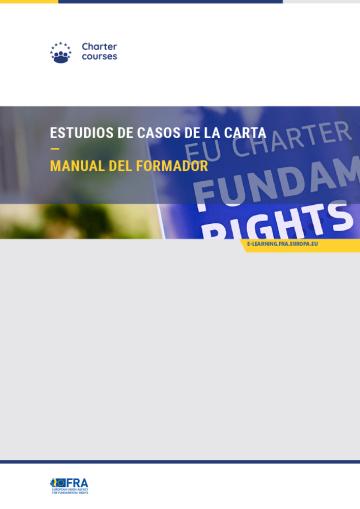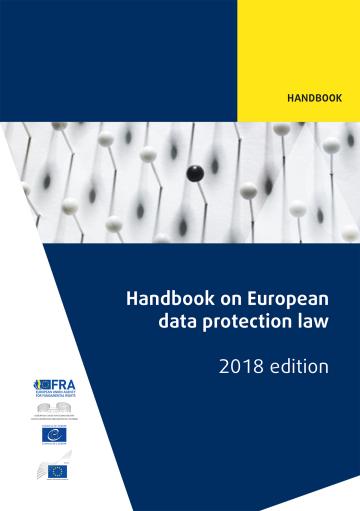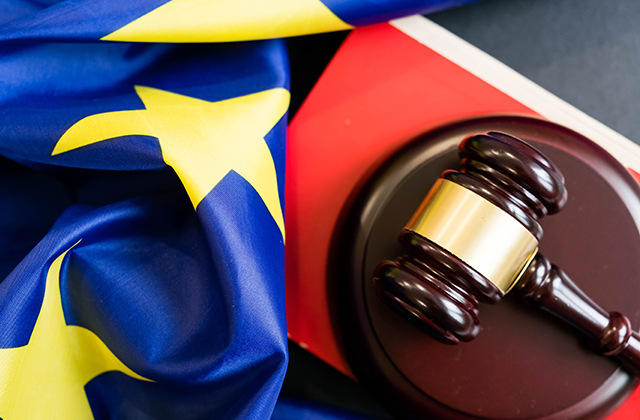El artículo 52 tiene por objeto fijar el alcance de los derechos y principios de la Carta, y establecer normas para su interpretación. El apartado 1 trata del régimen de limitaciones de derechos. La fórmula empleada se inspira en la jurisprudencia del Tribunal de Justicia: `… según jurisprudencia consolidada, pueden establecerse restricciones al ejercicio de estos derechos, en particular en el ámbito de una organización común de mercado, siempre que dichas restricciones respondan efectivamente a objetivos de interés general perseguidos por la Comunidad y no constituyan, teniendo en cuenta el objetivo perseguido, una intervención desmesurada e intolerable que afecte a la esencia misma de dichos derechos` (sentencia de 13 de abril de 2000, asunto C-292/97, apartado 45). La mención de intereses generales reconocidos por la Unión abarca tanto los objetivos mencionados en el artículo 3 del Tratado de la Unión Europea como otros intereses protegidos por disposiciones específicas de los Tratados, como el apartado 1 del artículo 4 del Tratado de la Unión Europea, el apartado 3 del artículo 35 del Tratado de Funcionamiento de la Unión Europea y los artículos 36 y 346 de este mismo Tratado.
El apartado 2 se refiere a derechos que ya habían sido explícitamente consagrados por el Tratado constitutivo de la Comunidad Europea, que han sido reconocidos por la Carta y que se encuentran ahora en los Tratados (en particular, los derechos derivados de la ciudadanía de la Unión). Este apartado aclara que esos derechos siguen sometidos a las condiciones y límites aplicables al Derecho de la Unión en el que se basen, tal como se establecen en los Tratados. La Carta no modifica el régimen de los derechos conferidos por el Tratado CE, recogidos en los Tratados.
El apartado 3 pretende garantizar la coherencia necesaria entre la Carta y el CEDH sentando la norma de que, en la medida en que los derechos de la presente Carta corresponden también a derechos garantizados por el CEDH, su sentido y alcance, incluidas las limitaciones que se admiten, son los mismos que prevé el CEDH. De ello resulta, en particular, que el legislador, al fijar limitaciones a estos derechos, deba respetar las mismas normas establecidas por el régimen preciso de limitaciones contemplado en el CEDH, que se aplican por consiguiente a los derechos contemplados por este apartado, sin que ello afecte a la autonomía del Derecho de la Unión y del Tribunal de Justicia de la Unión Europea.
La referencia al CEDH se refiere tanto al Convenio como a sus Protocolos. El sentido y el alcance de los derechos garantizados se determinan no sólo por el texto de estos instrumentos, sino también por la jurisprudencia del Tribunal Europeo de Derechos Humanos y por el Tribunal de Justicia de la Unión Europea. El objetivo de la última frase del apartado es permitir a la Unión garantizar una protección más amplia. En cualquier caso, el nivel de protección ofrecido por la Carta no puede nunca ser inferior al garantizado por el CEDH.
La Carta se entiende sin perjuicio de la posibilidad de que, al amparo del artículo 15 del CEDH, los Estados miembros establezcan excepciones a los derechos contemplados en el CEDH en caso de guerra o de otros peligros públicos que constituyan una amenaza para la nación, al llevar a cabo acciones en el ámbito de la defensa nacional en caso de guerra o de mantenimiento del orden público, con arreglo a sus responsabilidades reconocidas por el apartado 1 del artículo 4 del Tratado de la Unión Europea y los artículos 72 y 347 del Tratado de Funcionamiento de la Unión Europea.
La lista de derechos que, por ahora y sin descartar la evolución del Derecho, de la legislación y de los Tratados, pueden considerarse correspondientes a derechos del CEDH con arreglo al presente apartado, se reproduce a continuación. No se reproducen aquellos derechos que vienen a añadirse a los del CEDH.
1. Artículos de la Carta cuyo sentido y alcance son los mismos que los de los artículos correspondientes del CEDH:
- el artículo 2 corresponde al artículo 2 del CEDH, - el artículo 4 corresponde al artículo 3 del CEDH,
- los apartados 1 y 2 del artículo 5 corresponden al artículo 4 del CEDH,
- el artículo 6 corresponde al artículo 5 del CEDH,
- el artículo 7 corresponde al artículo 8 del CEDH, - el apartado 1 del artículo 10 corresponde al artículo 9 del CEDH,
- el artículo 11 corresponde al artículo 10 del CEDH, sin perjuicio de las restricciones que puede aportar el Derecho de la Unión a la facultad de los Estados miembros de establecer los regímenes de autorización a que se refiere la tercera frase del apartado 1 del artículo 10 del CEDH,
- el artículo 17 corresponde al artículo 1 del Protocolo Adicional del CEDH,
- el apartado 1 del artículo 19 corresponde al artículo 4 del Protocolo n.o 4,
- el apartado 2 del artículo 19 corresponde al artículo 3 del CEDH tal como lo interpreta el Tribunal Europeo de Derechos Humanos,
- el artículo 48 corresponde a los apartados 2 y 3 del artículo 6 del CEDH,
- los apartados 1 (salvo la última frase) y 2 del artículo 49 corresponden al artículo 7 del CEDH.
2. Artículos cuyo sentido es el mismo que el de los artículos correspondientes del CEDH, pero cuyo alcance es más amplio:
- el artículo 9 abarca el ámbito del artículo 12 del CEDH, pero su ámbito de aplicación puede ampliarse a otras formas de matrimonio siempre que la legislación nacional las contemple,
- el apartado 1 del artículo 12 corresponde al artículo 11 del CEDH, si bien su ámbito de aplicación se amplía al nivel de la Unión Europea,
- el apartado 1 del artículo 14 corresponde al artículo 2 del Protocolo Adicional del CEDH, si bien su ámbito de aplicación se amplía al acceso a la formación profesional y permanente,
- el apartado 3 del artículo 14 corresponde al artículo 2 del Protocolo del CEDH, por lo que se refiere a los derechos de los padres,
- los apartados 2 y 3 del artículo 47 corresponden al apartado 1 del artículo 6 del CEDH, si bien la limitación a los contenciosos sobre derechos y obligaciones de carácter civil o sobre acusaciones en materia penal no es pertinente respecto del Derecho de la Unión y su aplicación,
- el artículo 50 corresponde al artículo 4 del Protocolo n.o 7 del CEDH, si bien su alcance se amplía al nivel de la Unión Europea entre los órganos jurisdiccionales de los Estados miembros,
- por último, los ciudadanos de la Unión Europea no pueden considerarse extranjeros en el ámbito de aplicación del Derecho de la Unión debido a la prohibición de cualquier discriminación por razón de nacionalidad. Las limitaciones contempladas por el artículo 16 del CEDH en materia de extranjería no les serán por lo tanto aplicables en ese contexto.
La norma de interpretación que figura en el apartado 4 se basa en la redacción del apartado 3 del artículo 6 del Tratado de la Unión Europea y toma debidamente en consideración el planteamiento de las tradiciones constitucionales comunes seguido por el Tribunal de Justicia (por ejemplo, sentencia de 13 de diciembre de 1979, asunto 44/79, Hauer, Rec. 1979, p. 3727, sentencia de 18 de mayo de 1982, asunto 155/79, AM&S, Rec. 1982, p. 1575). Según esta norma, en lugar de seguir un planteamiento rígido de `mínimo común denominador`, los derechos correspondientes recogidos en la Carta deben interpretarse de forma que ofrezcan un elevado nivel de protección que resulte apropiado para el Derecho de la Unión y esté en armonía con las tradiciones constitucionales comunes.
El apartado 5 aclara la distinción entre `derechos` y `principios` reconocidos en la Carta. Según esta distinción, los derechos subjetivos deberán respetarse, mientras que los principios deben observarse (apartado 1 del artículo 51). Los principios pueden aplicarse mediante actos legislativos o ejecutivos (adoptados por la Unión en función de sus competencias y por los Estados miembros solamente en aplicación del Derecho de la Unión); por consiguiente, son importantes para los tribunales sólo cuando se trata de la interpretación o revisión de dichos actos. Sin embargo, no dan lugar a derechos inmediatos de acciones positivas de las instituciones de la Unión o de las autoridades de los Estados miembros, lo que es coherente tanto con la jurisprudencia del Tribunal de Justicia (véase en particular la jurisprudencia sobre el `principio de cautela` que figura en el apartado 2 del artículo 191 del Tratado de Funcionamiento de la Unión Europea: sentencia del Tribunal de Primera Instancia de 11 de septiembre de 2002 en el asunto T-13/99, Pfizer contra Consejo, que contiene numerosas referencias a la jurisprudencia anterior, así como una serie de sentencias sobre el artículo 33 (antiguo artículo 39) sobre los principios de la legislación agrícola, por ejemplo, la sentencia del Tribunal de Justicia en el asunto 265/85, Van den Berg, Rec. 1987, p. 1155: control del principio de estabilización de mercados y de confianza legítima) como con el planteamiento de los sistemas constitucionales de los Estados miembros respecto de los `principios`, en particular en el ámbito del Derecho social. A título ilustrativo, ejemplos de principios reconocidos por la Carta incluyen, entre otros, los artículos 25, 26 y 37. En determinados casos, un artículo de la Carta puede incluir elementos que se derivan de un derecho y de un principio, por ejemplo, los artículos 23, 33 y 34.
El apartado 6 remite a los diferentes artículos de la Carta que, en aras de la subsidiariedad, hacen referencia a la legislación y prácticas nacionales.









